A British boys boarding school in the 1980s. Not the most obvious setting for a romantic comedy, especially one based on the most famous romcom of all, Cyrano de Bergerac. But for director Toby Macdonald, it was the ideal challenge for his debut feature following the BAFTA-nominated short Heavy Metal Drummer.
Old Boys stars Alex Lawther as Amberson, an unpopular squirt of a boy struggling to wade through the school’s various allegiances and sports. Life takes an upturn on the arrival of Agnes (Pauline Etienne), the daughter of the new French teacher. She’s interesting, arty, and quite honestly the only girl for miles. She’s perfect save for one issue – mistakenly thinking the school’s airheaded jock Winchester (Jonah Hauer-King) is a gorgeous brooding poet. Bringing a fresh twist to the classic tale, the boys team together to create music videos and artistic packages in the hopes of wooing their French amore.
The film brings British deadpan humour to the unrequited love of Cyrano. The pretension of boarding school is countered by the naïveté of its students – how can they understand a girl when they barely understand the rules of their own ridiculous sport, Streamers? Director Macdonald (pictured below) spoke to The Arts Desk about creating this world and why it’s perfect for a romantic story.
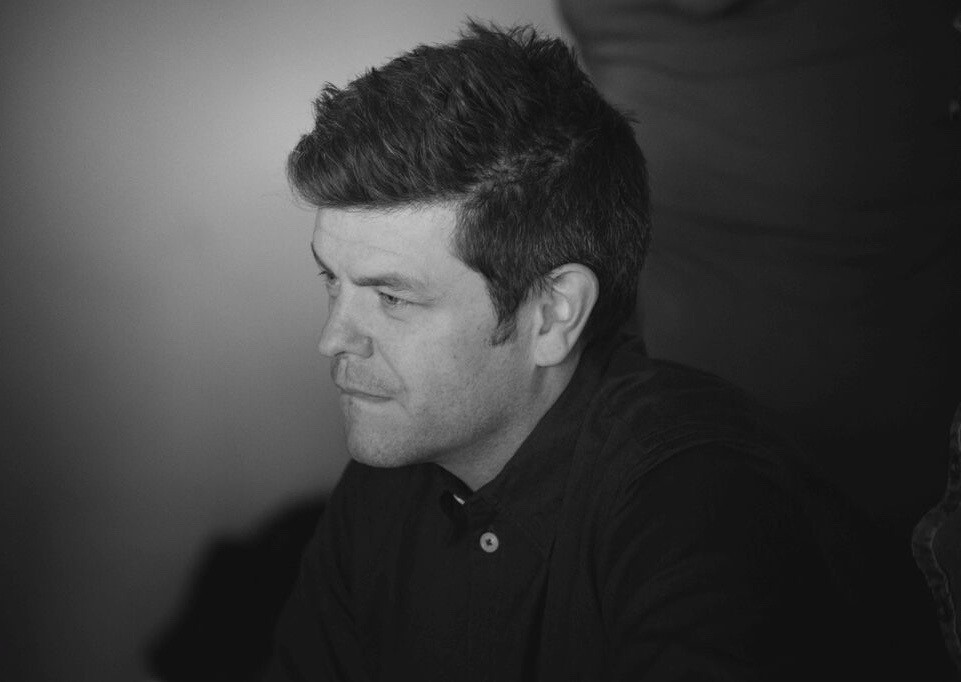 OWEN RICHARDS: When did you first come on board with Old Boys?
OWEN RICHARDS: When did you first come on board with Old Boys?
TOBY MACDONALD: The team I work with, we have made a couple of shorts together. There was an idea of one girl in a boys boarding school that writer Luke Ponte had, but it took us a while to get the script right. I was there from the beginning.
What drew you into making it your debut feature?
I think that the world is completely unpromising for a romantic story, which is always a good start. We thought the arena itself was a really fun way to make a film about teenagers, particularly that English experience. It was really funny world in which to set a comedy and a romantic film.
The film captures how life in a boarding school is both surreal and mundane.
There’s a long tradition of the boarding school film, starting with Zéro de conduite the Jean Vigo film, and then Lindsay Anderson’s if… which is a lot about the politics of the situation and a masterpiece of the genre. From our experience, we thought there was a sort of crapness of those institutions to be captured. There’s that sense of boys being told how great they are for no particular reason, they’re just born to run the country and this false confidence it gives them. Then obviously having no experience of girls, it seems like a really fun way to collide lots of those ideas.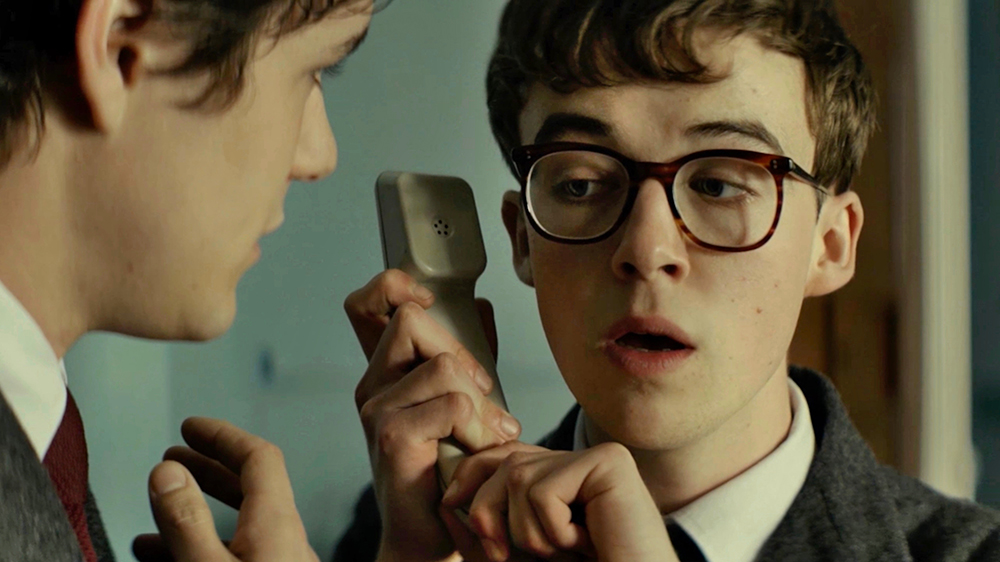 What I really love is an underdog story, so to have the underdog character of the school, that was really important to me. I always felt with if… the power was very strong in that era which was probably reflective of the strength of the country at the time. We set out story at time when these schools were (although they didn’t know it quite yet) probably on the wane. They’re about to have to admit girls for the financial reasons. We just thought that was really interesting, the fact they think they’re greater than perhaps they are.
What I really love is an underdog story, so to have the underdog character of the school, that was really important to me. I always felt with if… the power was very strong in that era which was probably reflective of the strength of the country at the time. We set out story at time when these schools were (although they didn’t know it quite yet) probably on the wane. They’re about to have to admit girls for the financial reasons. We just thought that was really interesting, the fact they think they’re greater than perhaps they are.
It also humanises the boarding school setting, which tends to be satirised to the extremes, doesn’t it?
Yes, I think so. It’s interesting, we were always concerned about where the line was. People have said “you’ve stylised this”, but from everything we’ve heard, it’s actually much worse than how we show it! It’s a delicate balance. Of course, boarding schools are now having a resurgence thanks to Harry Potter!
There’s been a lot of adaptations of Cyrano de Bergerac, both classic and modernisations. What do you think your version brings to it?
I suppose I always felt the emotional core of Cyrano just transposed really perfectly to teenagers. I went to see the Depardieu/Rappeneau version of it as a teenager. It spoke very much to me in terms of unrequited love, being really bad with girls, and the ironies at play within it. It really fit within a teenage worldview, I thought.
Did you put any of your own teenage experiences within the film?
Well that unrequited love is probably the strongest emotion I felt at that time! Also, I suppose a sense that you had something to give but maybe you were in the wrong place to give it. That was a feeling I definitely had and the character of Amberson (Alex Lawther) has in our film.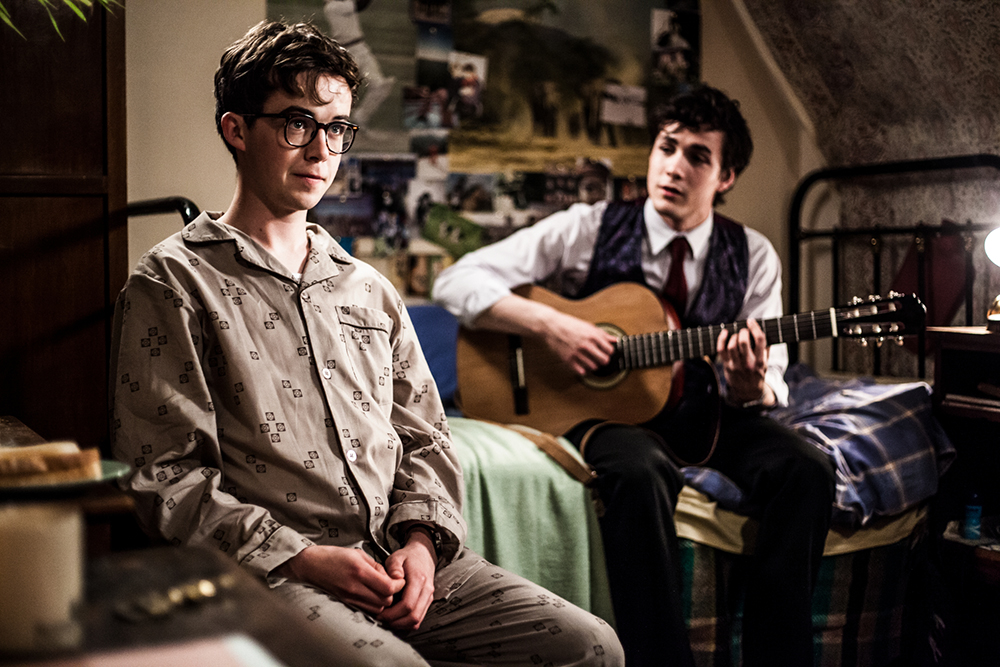 The young cast have a great chemistry, what was it like putting that together?
The young cast have a great chemistry, what was it like putting that together?
That was just a testament to them. They’re all great friends now. We filmed the Streamers section first [in which the boys play an unusual rugby style game in a river], everybody was chucked in the freezing water in the middle of March, so everybody bonded quickly. It was like a boot camp for those boys.
For Alex Lawther and Pauline Etienne, we were just really lucky in terms of their wonderful chemistry. They’ve gone on to become great friends. Jonah Hauer-King and Alex as well, they’re two really wonderful young actors and we’re going to see lots of great things from them. They’re the same age but there’s a really strong contrast in their characters so that helps the chemistry too.
Is Streamers a real game?
No, it’s made up, but in those schools, they have a lot of made-up games. Each school tends to have one that relates to a quirk of architecture in the grounds, with very strange rules, arcane meanings and difficult ways of scoring. They also have their own language, so we mixed bits of the shipping forecast and strange nonsense words. The rules are a blend of different games, like the Eton Wall Game in which no-one’s scored for about a hundred years. There’s also a game called Shrovetide Football which is played in the Midlands, which is a really old pagan style game between two villages in a river.
My partner’s from a town called Atherstone, and they play something similar called the Ball Game which dates back to the 1100s!
That sounds great! England is full of those games it seems. We thought it was a great way to show the hierarchy in the school. If you’re good at the game, you’re a school hero.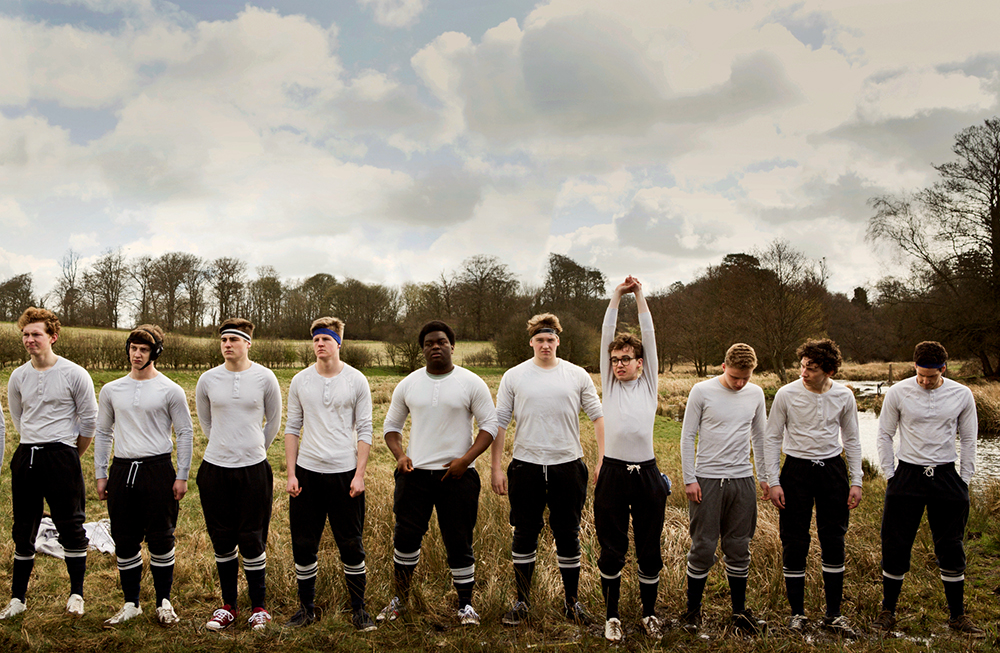 So it wasn’t just a way of torturing the cast into bonding?
So it wasn’t just a way of torturing the cast into bonding?
No, but I have to say Alex Lawther, although he seems very sensitive and urbane, he is tough. He was in the water all the time, and it was ice cold. He is a really tough guy. When everyone saw him, it really set an example for the rest of the shoot.
It looks like you had great fun being creative with the videos and written messages. Was that a collaborative effort creating those?
We actually worked with an artist called Tilly Power, and she made all the small hand props and flip books. She made them all from the different characters points of view, and it was a joy seeing what she came up with. The way she was able to capture the creative exchange, she’s really gifted. What’s great is that people go up to Alex after the screenings and say how much they love his artwork! The tactile quality of that is something we really loved, and that “lo-fi”ness too. In some movies you feel like they’ve been made by the art director, but we wanted it to feel like they were made by the characters in the film. It had to be lo-fi but still capture the character’s voice emerging through it too.
And it’s a much more visual way of showing their creativity than the original poetry of Cyrano de Bergerac.
Yeah, that was our aim to keep it really visual and to throwback to the joy of making things. Obviously that was part of the reason we set it in the Eighties, to avoid mobile phones and emojis!
I suppose it also avoids the need of writing great poetry for the script too?
Yeah, well that aspect is really difficult to do in film. It’s a bit like when you see a film about stand-up comedy, and you have to make sure the jokes are good. It’s a really hard thing to capture. Freddy Syborn, the writer, did actually write some incredible poetry that we experimented with in the edit, but we couldn’t find a way to make it work.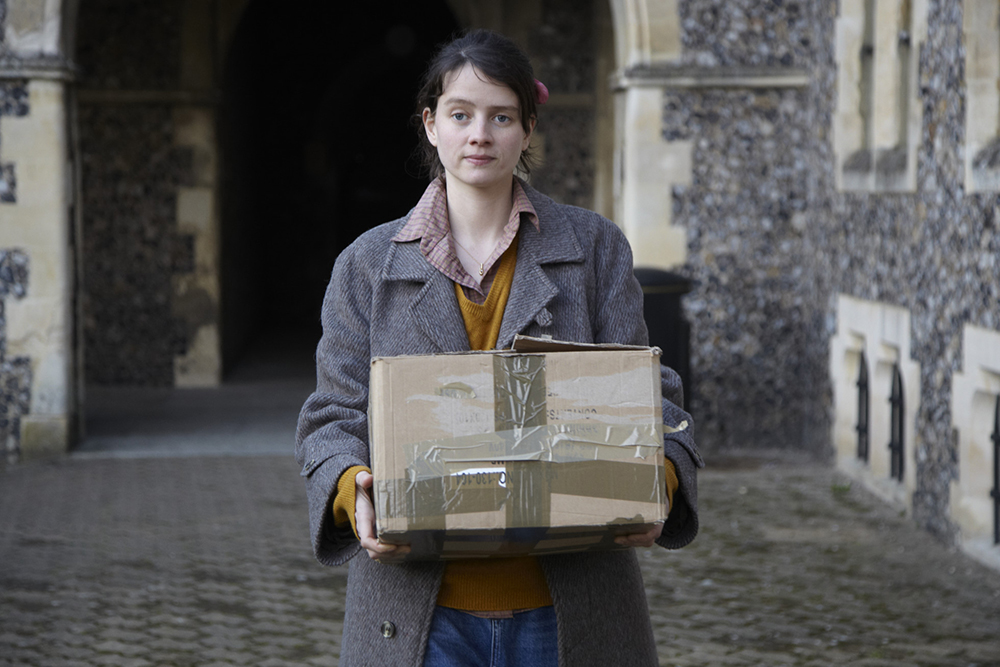 I loved the use of popular and classical music in the film, especially with 2001 references. How did you decide what to use?
I loved the use of popular and classical music in the film, especially with 2001 references. How did you decide what to use?
Some of the songs were written into the script, and some we spent hours and hours in the edit trying to find the exact right piece for the moment. We have a mixture of pomposity of the school and the tenderness between Agnes and Amberson, and then some silliness in places. My favourite part we came up with is using the Ski Sunday theme. It was the editor, Sam Sneade’s idea, and it was the exact thing the school hero would choose for himself - that’s about as deep as his music sensibilities go.
What’s it been like working with Film4 on your debut feature?
It was amazing, we were very lucky to work with them. They were really brilliant throughout the process and especially shaping the film in the edit. Also, in the late development of the script, we worked particularly with Sam Lavender who’s an amazing filmmaker himself. We were also very lucky to work with BFI and Natasha Wharton, who were really helpful in finding that delicate tone.
You’re now on a Q&A tour with the film, do you enjoy watching your work with audiences?
I’m now at the point where I can’t watch it anymore. The first few times was absolutely wonderful because they were laughing, but now it becomes a bit raw. But I really enjoy the Q&As and the responses people have. I also think comedy is something people need at the moment, especially a tender comedy.

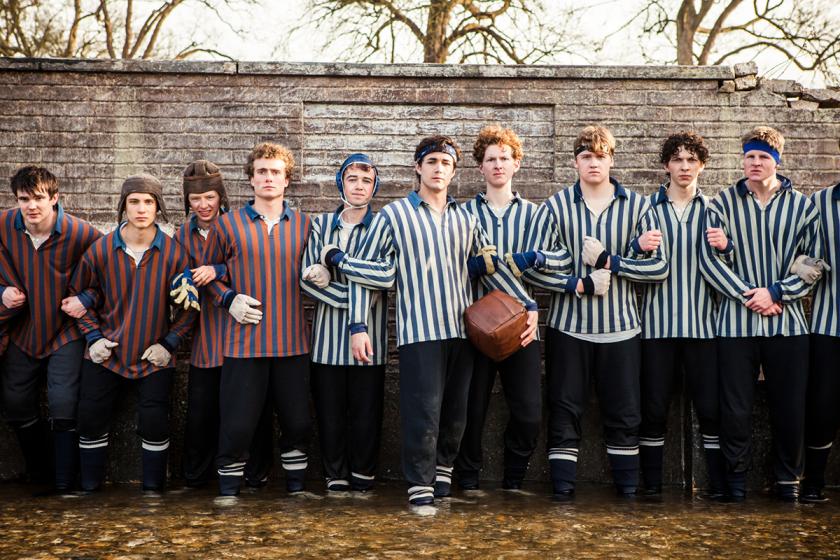













Add comment